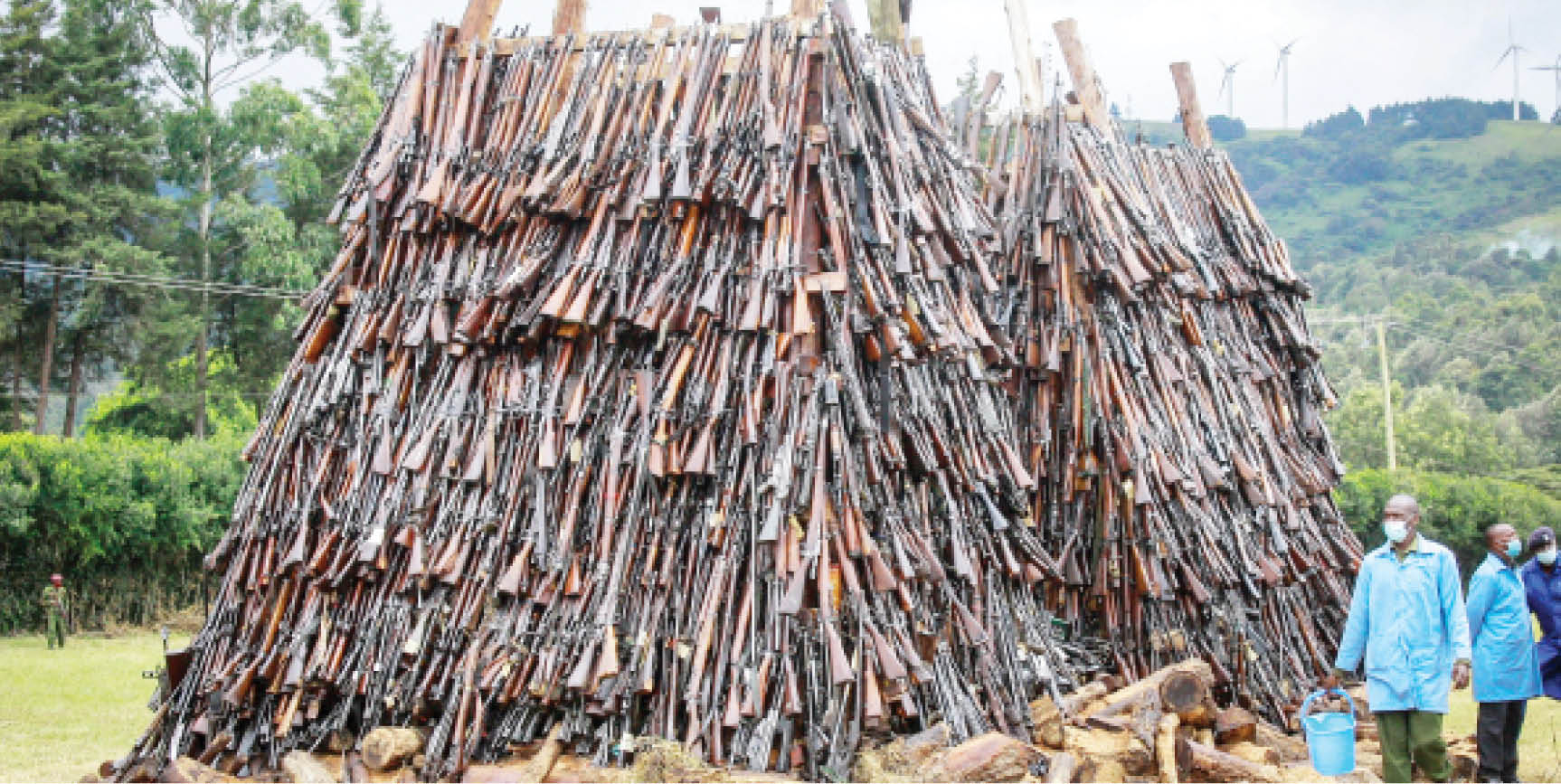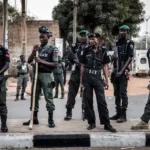The proliferation of Small Arms and Light Weapons (SALWs), occasioned by illegal and porous national borders and a booming business of gun-running, are the main factors fueling Nigeria’s security challenges, giving rise to criminal activities across the country.
The proliferation of SALWs is a global phenomenon arising from conflicts across the globe. According to a study conducted by the Geneva-based Small Arms Survey, it is estimated that more than 857 million SALWs are currently in circulation aside from 12 billion rounds of ammunition produced annually. Of these, 10 million SALWs are estimated to be in Africa with one million of these in Nigeria.
- Imo monarch regains freedom one week after kidnap
- Bandits kill 7 near military checkpoint, abduct many in Katsina, Kaduna
This is connected with previous and on-going conflicts in West and North African countries such as Liberia, Sierra Leone, Cote d’Ivoire, Chad, Niger, Mali and Libya.
Proliferation of SALWs aid non-state actors including Boko Haram/ISWAP terrorists, bandits, militants etc. while undermining state monopoly of instruments of coercion. The threats posed by proliferation of SALWs are of such magnitude that a security strategy which contemplates the monitoring of their flow and use is required.
Another report by SBM Intelligence noted that about 6,145,000 SALWs are illegally circulating among civilian non-state actors and criminals in Nigeria. Meanwhile, the country’s security institutions have a paltry 586,600 firearms in their possession.
Experts have identified lack of effective legislation and enforcement mechanisms as a major reason SALW proliferation has a significant impact on crises both within and across many national borders.
In order to stem the rising tide of illegal weapons circulation, the federal government has established the National Centre for the Control of Small Arms and Light Weapons (NCCSALW). The centre was domiciled under the Office of the National Security Adviser (ONSA).
The NCCSALW was established to replace the defunct Presidential Committee on Small Arms and Light Weapons and is expected to serve as the institutional mechanism for policy guidance, research and monitoring of all aspects of SALWs in Nigeria.
Among several functions, the national centre will be responsible for controlling the proliferation of SALWs in Nigeria, implementing strategies, plans and policies for the eradication of SALWs, as well as supervise the implementation of same by relevant government bodies. It will also create and maintain a small arms and light weapons register and a national database; receive reports on firearms registration from the Nigeria Police and update the database with such information.
No doubt, the establishment of the NCCSALW is a move in the right direction, but to achieve maximum impact, it is expected to open up new regional and international cooperation and strengthen existing efforts.
In 2001, UN countries adopted the Programme of Action to Prevent, Combat and Eradicate the Illicit Trade in Small Arms and Light Weapons in All Its Aspects.
In the instrument, member states agreed to, among others, improve national small arms regulations, strengthen stockpile management, ensure that weapons are properly and reliably marked, improve cooperation in weapons tracing and engage in regional and international cooperation and assistance.
Hopefully, when the centre discharges its mandate fully, it will undoubtedly lead to drastic reduction in national, sub-regional and regional illegal possession of SALWs which in turn, will be very crucial in mitigating the rising level of armed violence.
Mukhtar Ya’u Madobi wrote from Kano

 Join Daily Trust WhatsApp Community For Quick Access To News and Happenings Around You.
Join Daily Trust WhatsApp Community For Quick Access To News and Happenings Around You.

